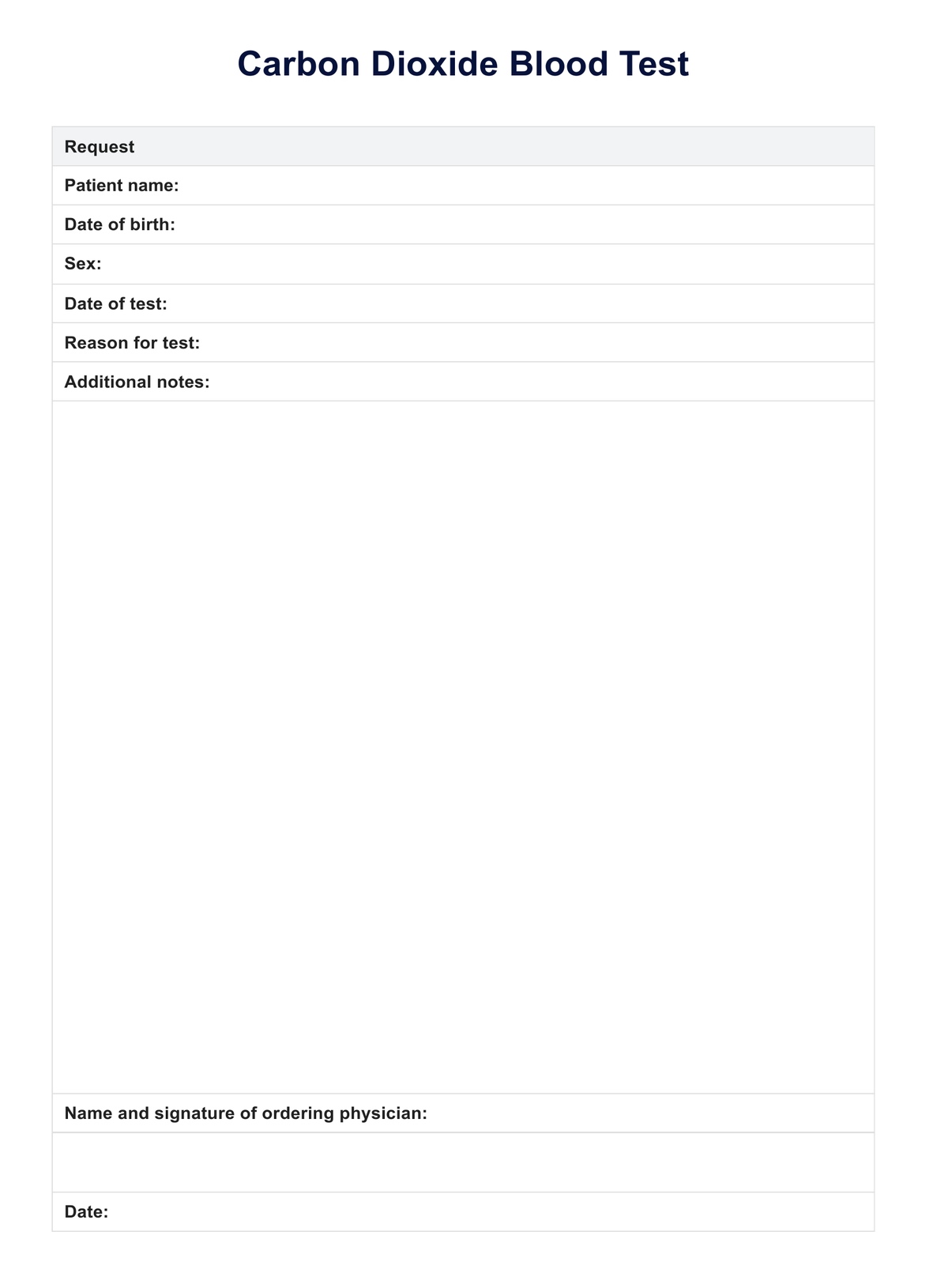General physicians, their assistants, and nurses typically request carbon dioxide blood tests.

Carbon Dioxide Blood Test
Learn more about the carbon dioxide blood test, its result interpretations, and when to use it with our short guide.
Use Template
Carbon Dioxide Blood Test Template
Commonly asked questions
Carbon Dioxide Blood Tests are used to investigate the source of one??s symptoms, formulate a diagnosis, and monitor the condition or treatment.
The carbon dioxide blood test typically can take a few hours. Though the sample collection will only take a few minutes, the analysis and interpretation may take time, depending on the laboratory and the referring physician.
EHR and practice management software
Get started for free
*No credit card required
Free
$0/usd
Unlimited clients
Telehealth
1GB of storage
Client portal text
Automated billing and online payments











